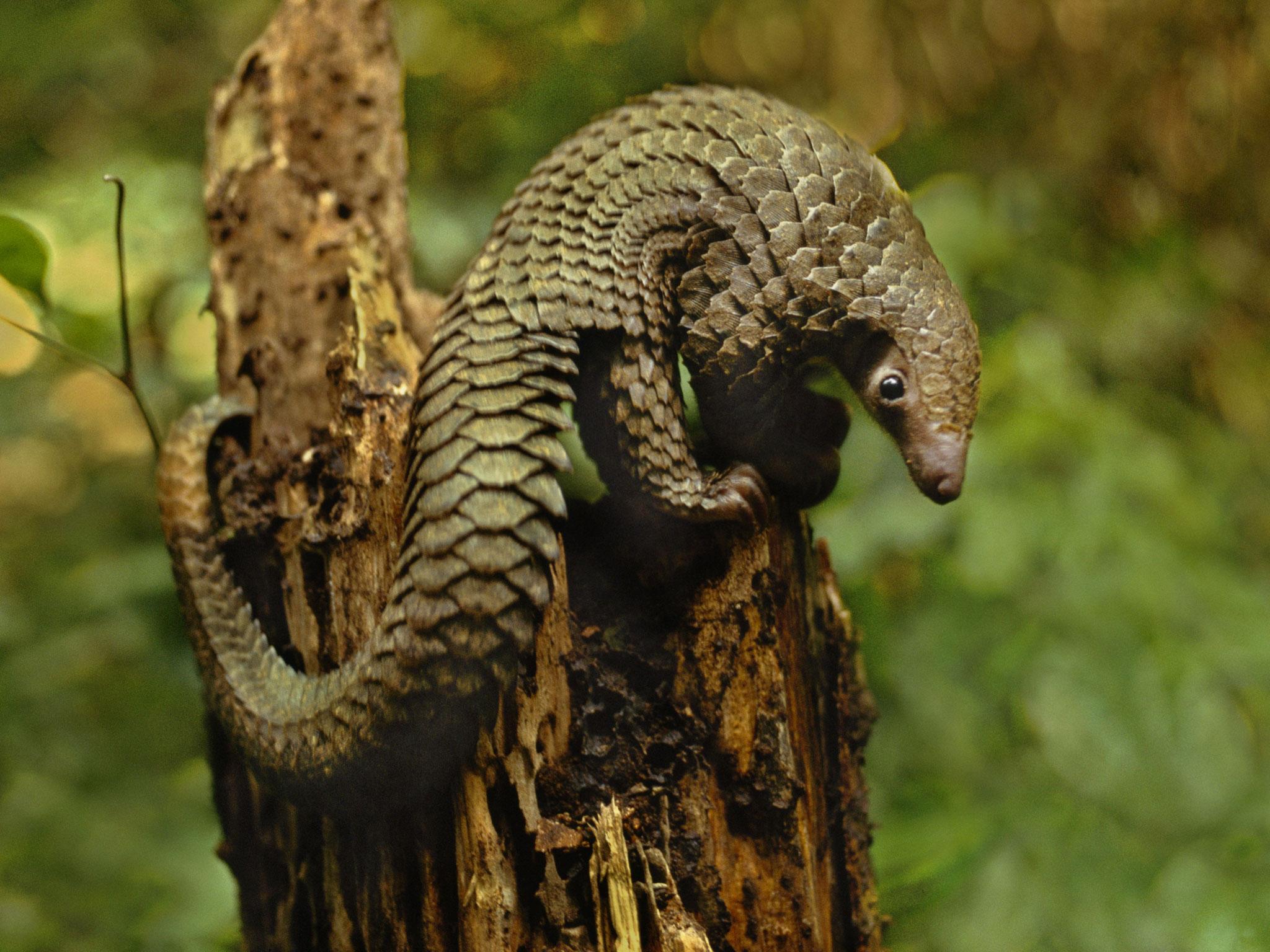The most illegally traded animal in the world is one you've never heard of
A new study conducted by British researchers and Chinese law enforcement found that the Chinese pangolin was in danger of being "eaten to extinction"

Your support helps us to tell the story
From reproductive rights to climate change to Big Tech, The Independent is on the ground when the story is developing. Whether it's investigating the financials of Elon Musk's pro-Trump PAC or producing our latest documentary, 'The A Word', which shines a light on the American women fighting for reproductive rights, we know how important it is to parse out the facts from the messaging.
At such a critical moment in US history, we need reporters on the ground. Your donation allows us to keep sending journalists to speak to both sides of the story.
The Independent is trusted by Americans across the entire political spectrum. And unlike many other quality news outlets, we choose not to lock Americans out of our reporting and analysis with paywalls. We believe quality journalism should be available to everyone, paid for by those who can afford it.
Your support makes all the difference.A new report has shown that “most traded wild animal” is the pangolin, a unique mammal that is being illegally trafficked and slaughtered for its meat and scales – the latter being highly sought after in traditional Chinese medicine.
The scale of the trade is so great that a recent report from Chinese law enforcement and British researchers warns that the Chinese pangolin (one of eight species of pangolin) is in danger of being “eaten to extinction”.
Analysing records of seized goods since 2010 the team found 2.59 tonnes of scales representing approximately 4,870 pangolins, along with 259 intact creatures – 220 of which were living, 39 of which were dead.
"The numbers of pangolins traded are shocking, and all the more so considering the pharmaceutical pointlessness of the trade,” Professor David Macdonald of Oxford University and a co-author of the paper, told the BBC. “This trade is intolerably wasteful,"
Prices for pangolin scales have rocketed since the 1990s. According to the study published in the journal Frontiers in Ecology and the Environment, a kilogramme of scales that used to sell for £8.50 now fetches up to £360.
The creature is also in demand as part of the Chinese love of “wild taste” – the national, and slightly nostalgic, appetite for various wild and exotic animals including monkeys, birds and snakes. Chinese officials say that due to the risks of disease only farm-raised exotic animals are allowed to be consumed, but demand for the ‘real thing’ continues.
For the pangolin this is proving to be disastrous. The scaly anteater, as it is sometimes known, gives birth to a single offspring once a year, and conservations worry that its plight is being overlooked in favour of megafauna such as elephants, rhinos and tigers.
"We've uncovered a disastrous situation and currently all the omens for the pangolin are bad but hopefully by drawing attention to this useless trade, international opinion may contribute to changing the situation of the pangolin," said Professor Macdonald.
Join our commenting forum
Join thought-provoking conversations, follow other Independent readers and see their replies
Comments